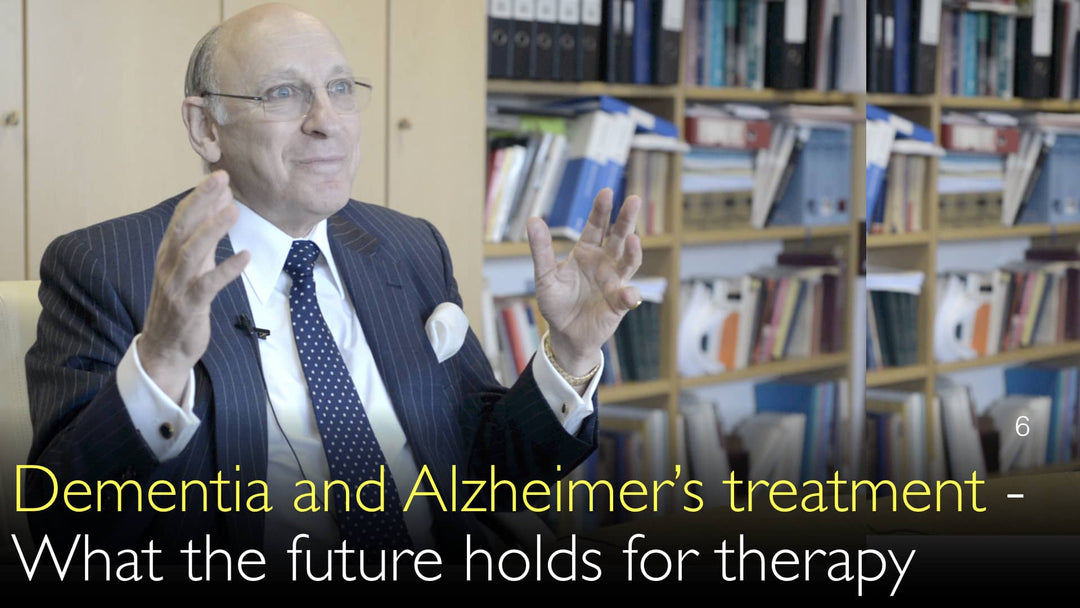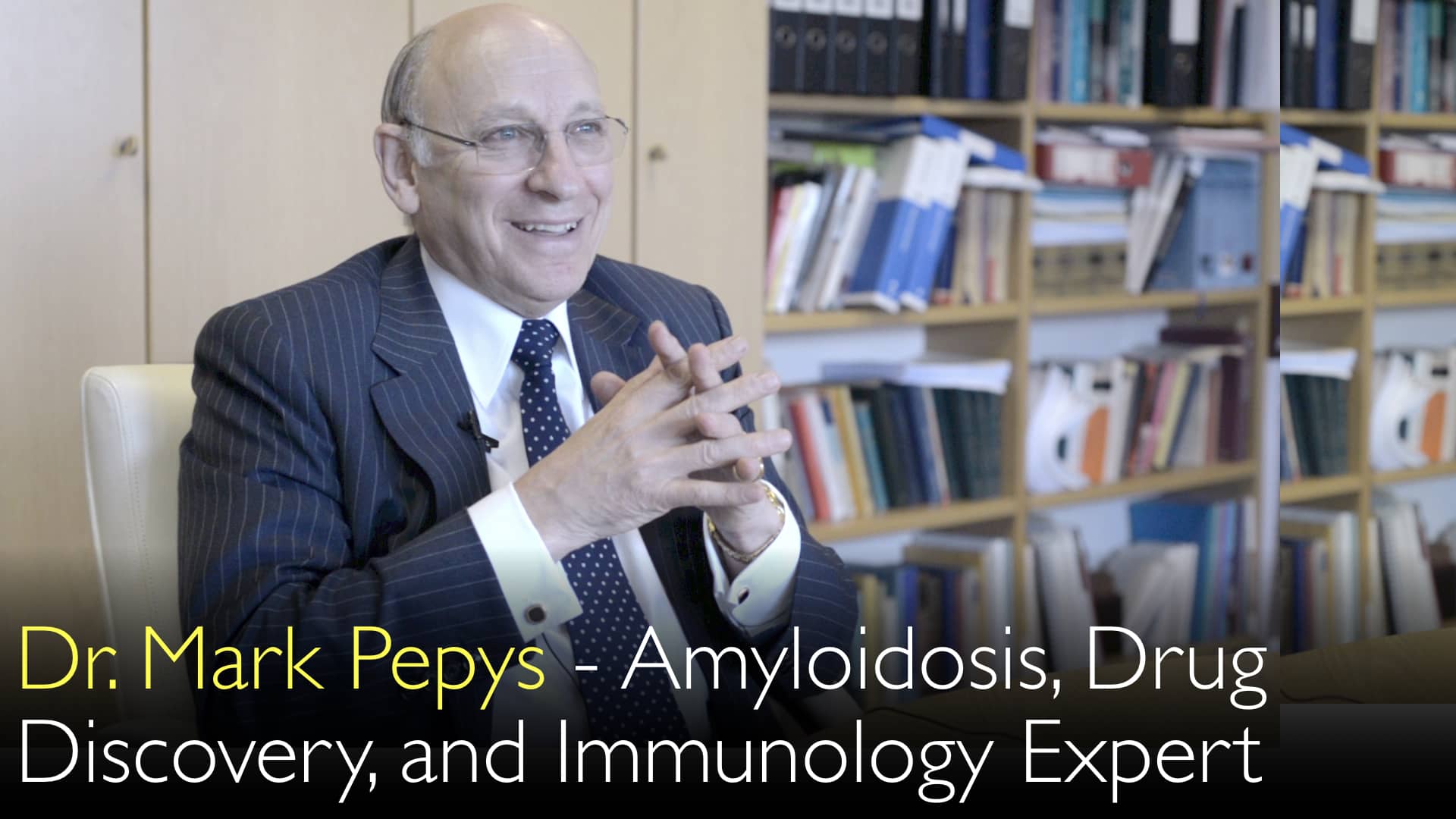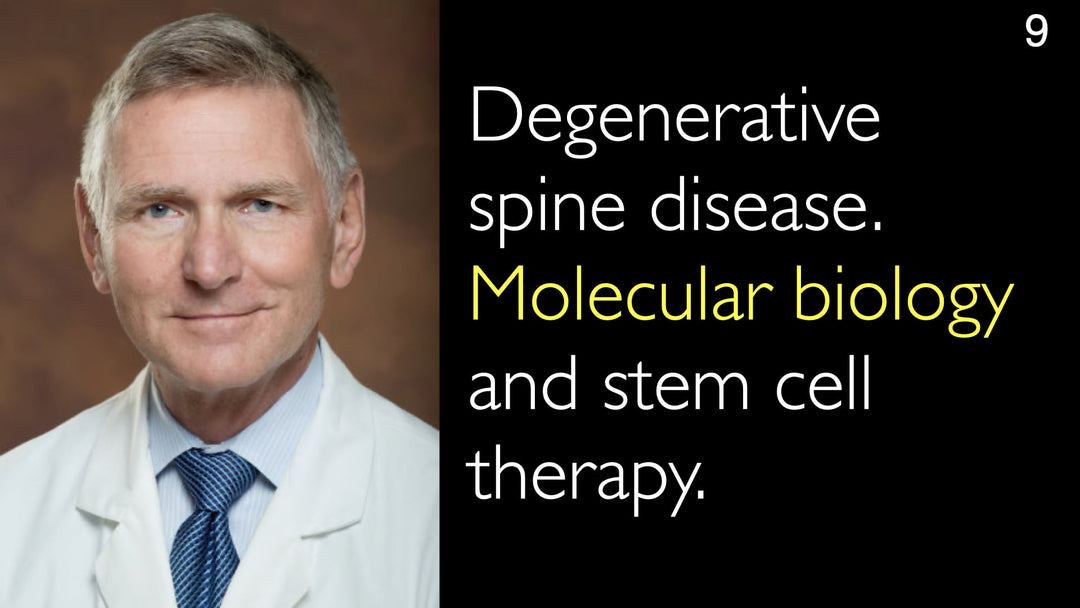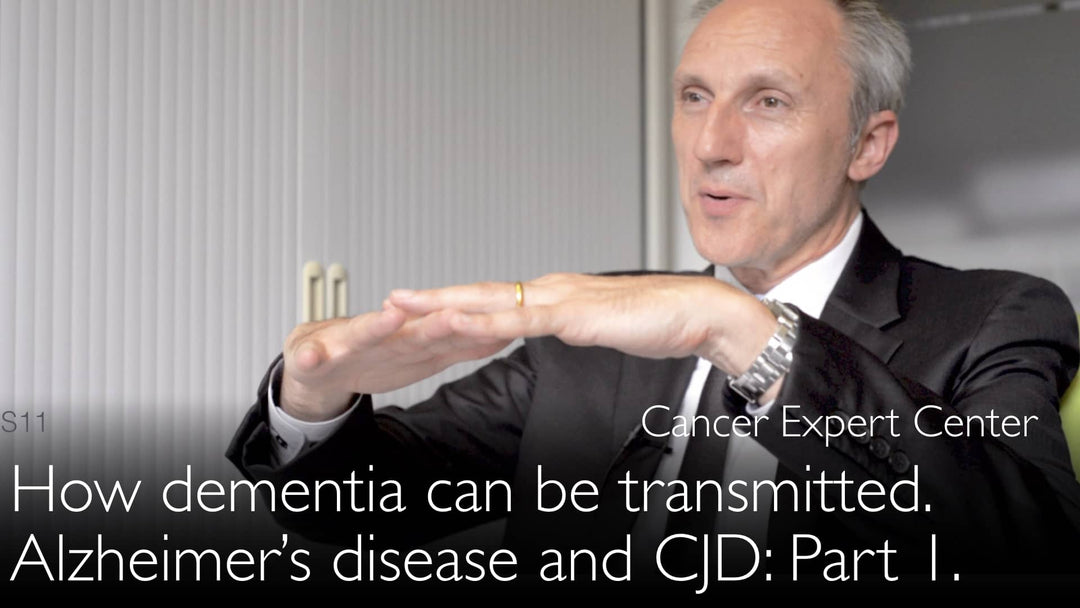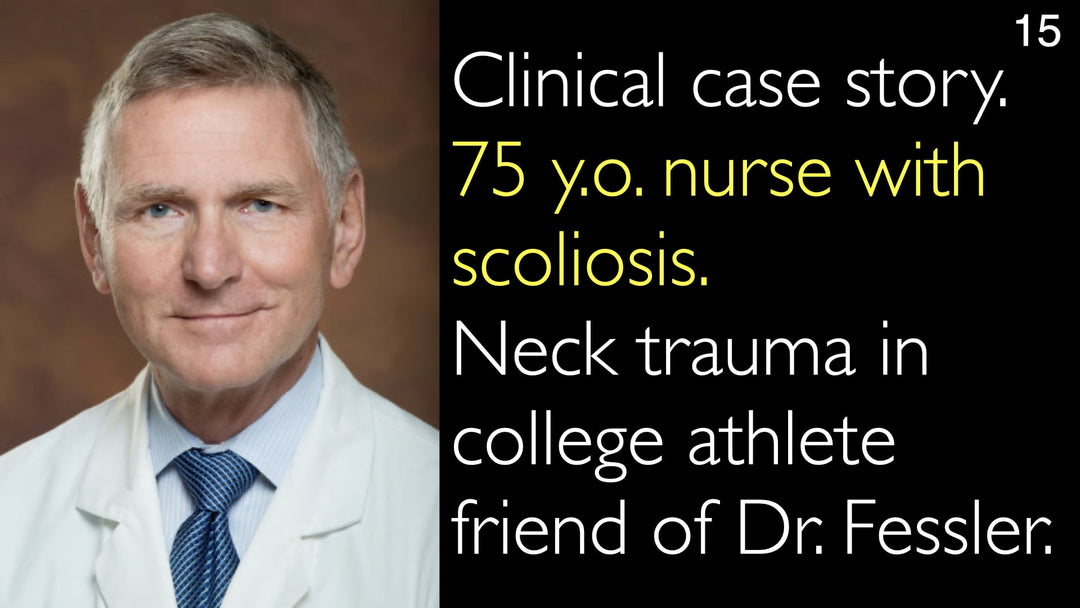O renomado especialista em imunologia e amiloidose, Dr. Mark Pepys, analisa o futuro do tratamento da doença de Alzheimer. Ele ressalta a importância de manter a mente aberta e explorar múltiplas frentes terapêuticas. Dr. Pepys também aborda os desafios no desenvolvimento de medicamentos e a tendência de pensamento coletivo na pesquisa. Com esperança, ele vislumbra que futuras terapias possam retardar ou interromper a progressão da doença, permitindo que pacientes em estágio inicial mantenham sua funcionalidade e qualidade de vida.
Abordagens Inovadoras e Direções Futuras no Tratamento da Doença de Alzheimer
Navegar para a Seção
- Estado Atual da Pesquisa sobre Alzheimer
- Desafios no Desenvolvimento de Medicamentos
- Importância da Pesquisa de Mente Aberta
- Objetivos Realistas de Tratamento
- Papel dos Governos e Priorização
- Transcrição Completa
Estado Atual da Pesquisa sobre Alzheimer
O Dr. Mark Pepys observa uma mudança significativa e encorajadora no foco sobre a doença de Alzheimer. Ele ressalta que, em comparação com o enorme custo social da demência, o investimento histórico em pesquisa clínica foi desproporcionalmente baixo. Atualmente, há um grande foco na doença, com muitos profissionais inteligentes e dedicados priorizando-a amplamente. Essa atenção crescente de empresas e organizações é um desenvolvimento positivo para a área. O Dr. Pepys acredita que esse maior engajamento só tende a beneficiar os avanços futuros.
Desafios no Desenvolvimento de Medicamentos
O processo de desenvolvimento de novos tratamentos para o Alzheimer enfrenta obstáculos substanciais. O Dr. Mark Pepys explica que os altos custos tornam as empresas farmacêuticas inerentemente avessas ao risco, impedindo-as de assumir grandes apostas com os recursos dos acionistas. Essa pressão financeira frequentemente leva a uma "mentalidade de rebanho" na ciência, na qual todos perseguem alvos semelhantes e menos validados por parecer mais seguro. O Dr. Anton Titov e o Dr. Pepys discutem como essa tendência prejudica a qualidade da tomada de decisão e cria um sistema ineficiente para descobrir terapias verdadeiramente inovadoras.
Importância da Pesquisa de Mente Aberta
Um tema central defendido pelo Dr. Mark Pepys é a necessidade crítica de uma mente aberta na pesquisa sobre Alzheimer. Ele enfatiza que a comunidade científica não deve focar apenas em um alvo específico, mas investigar diversos mecanismos potenciais de patogênese. O objetivo fundamental é continuar buscando entender o que realmente causa a doença e o que leva à morte das células cerebrais. O Dr. Pepys afirma que a investigação científica séria para compreender melhor o Alzheimer é a única maneira de fazer progressos reais. Essa compreensão mais profunda é um pré-requisito para o desenvolvimento de abordagens racionais e eficazes contra a doença.
Objetivos Realistas de Tratamento
Ao discutir resultados potenciais, o Dr. Mark Pepys oferece uma perspectiva pragmática. Ele sugere que uma cura definitiva para a doença de Alzheimer provavelmente é fantasiosa, especialmente quando o cérebro já está gravemente danificado, dada sua capacidade limitada de recuperação. No entanto, ele destaca que o máximo que se pode esperar – e o que representaria um grande avanço – é um tratamento que retarde ou interrompa a progressão da doença. Essa terapia permitiria que pacientes com comprometimento cognitivo leve ou Alzheimer em estágio inicial mantivessem sua independência funcional. Isso melhoraria significativamente sua qualidade de vida e adiaria a necessidade de cuidados intensivos.
Papel dos Governos e Priorização
O Dr. Mark Pepys aponta uma tendência positiva: os governos nacionais agora estão muito mais focados na demência e a tornaram uma grande prioridade. Essa priorização em alto nível é um desenvolvimento crucial que pode ajudar a superar os desafios inerentes ao desenvolvimento corporativo de medicamentos. Ao elevar a doença de Alzheimer como uma grande iniciativa de saúde pública, os governos podem ajudar a reduzir o risco da exploração de vias de pesquisa menos populares, mas potencialmente revolucionárias. O Dr. Pepys conclui que esse foco governamental só pode ser benéfico e espera que leve a progressos tangíveis na terapia para os milhões afetados.
Transcrição Completa
Dr. Mark Pepys, MD: O que importa é descobrir um tratamento eficaz para a doença de Alzheimer. Temos que manter a mente aberta. Não devemos focar apenas em um alvo específico, mas em muitos. Precisamos estar abertos aos mecanismos de patogênese. Temos que continuar investigando o que realmente causa a doença. O que de fato mata as células cerebrais?
Dr. Anton Titov, MD: Professor Sir Mark Pepys, imunologista líder e especialista em amiloidose, qual você acredita ser o futuro do tratamento da doença de Alzheimer? De onde pode vir a esperança? Quais são as tendências atuais na sua perspectiva?
Dr. Anton Titov, MD: Professor Pepys, você tem vasta experiência em pesquisa e trabalho clínico. Muitos ensaios clínicos falharam. Bilhões de dólares foram gastos. O que o futuro reserva para o tratamento da doença de Alzheimer?
Dr. Mark Pepys, MD: É muito encorajador. Há muito mais foco e atenção nesta área importante do que no passado. Em comparação com o custo social da doença de Alzheimer, historicamente houve menos investimento em pesquisa e investigação clínica. Agora há um grande foco na doença. Muitas pessoas a priorizaram. Isso só pode ser positivo. Quanto à origem dos avanços, receio que meu palpite não seja melhor que o de qualquer outra pessoa.
Há muitas pessoas, empresas e organizações inteligentes e diligentes trabalhando no Alzheimer. São problemas muito desafiadores. Não tenho certeza se alguém pode prever de onde virá um avanço.
O importante é manter a mente aberta. Temos que focar em mais de um alvo específico. Devemos investigar diversos mecanismos de patogênese. Precisamos continuar buscando entender o que realmente causa a doença e o que mata as células cerebrais.
Há muitas vias diferentes a explorar no tratamento do Alzheimer. A única maneira de progredir, creio, é continuar com a investigação científica séria para entender melhor a doença. Só então, compreendendo-a, teremos a chance de combatê-la e tratar os pacientes.
Atualmente, nossa compreensão do Alzheimer é incompleta. Isso nem sempre nos permite pesquisar a doença de forma racional. Infelizmente, é assim que a sociedade está organizada. O desenvolvimento de medicamentos prossegue de modo ineficiente.
As pessoas tendem a seguir uma mesma trilha. Então, todos acabam fazendo o mesmo. Toda a pesquisa e o pensamento tornam-se mais ou menos iguais. Existe, de fato, uma mentalidade de rebanho na ciência! Ela desvaloriza a qualidade da tomada de decisão no Alzheimer.
Mas vai além disso. Os custos do desenvolvimento de medicamentos são tão altos que as empresas precisam ser avessas ao risco. Elas não podem assumir grandes apostas com os recursos de seus acionistas.
As empresas farmacêuticas gastam quantias enormes em algo. Candidatos a tratamento menos validados ou menos populares são negligenciados. Por isso, as empresas tendem a seguir direções semelhantes. É um obstáculo muito difícil de superar no Alzheimer.
Mas agora que os governos estão muito focados na doença e a tornaram uma grande prioridade – diferentes governos nacionais priorizaram a demência –, isso só pode ser positivo. Espero que leve a progressos na terapia para o Alzheimer.
Quanto a uma cura para a doença, provavelmente é algo fantasioso. Uma vez que o céreiro está gravemente danificado, sua capacidade de recuperação é limitada. Mas quem sabe? Vemos avanços incríveis com células-tronco no Alzheimer. Talvez haja possibilidades de melhoria.
Porém, o máximo que se pode esperar é retardar a doença. Isso já seria um grande avanço. Se pudéssemos interromper sua progressão, pacientes com comprometimento cognitivo leve ou Alzheimer muito inicial poderiam continuar funcionando.
Assim, os pacientes não precisariam de tantos cuidados. Teriam melhor qualidade de vida. Como são majoritariamente idosos, poderiam sucumbir a outras doenças antes de chegarem à demência em estágio terminal. Isso é o que temos que almejar.


